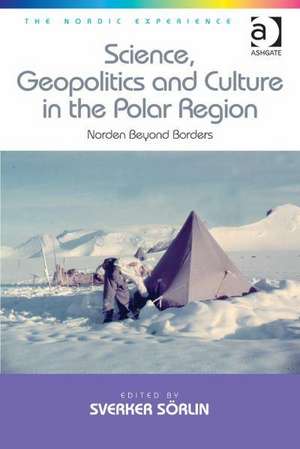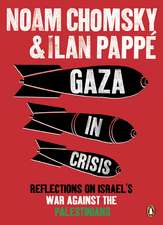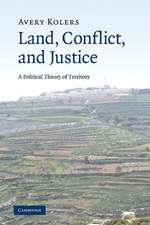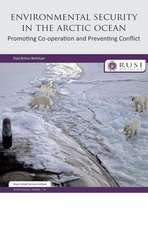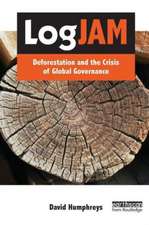Science, Geopolitics and Culture in the Polar Region: Norden Beyond Borders: The Nordic Experience
Autor Sverker Sörlinen Limba Engleză Hardback – 29 aug 2013
Preț: 1073.65 lei
Preț vechi: 1309.33 lei
-18% Nou
Puncte Express: 1610
Preț estimativ în valută:
205.43€ • 215.64$ • 170.52£
205.43€ • 215.64$ • 170.52£
Carte tipărită la comandă
Livrare economică 10-24 aprilie
Preluare comenzi: 021 569.72.76
Specificații
ISBN-13: 9781472409690
ISBN-10: 1472409698
Pagini: 462
Ilustrații: Includes 31 b&w illustrations
Dimensiuni: 156 x 234 x 25 mm
Greutate: 1 kg
Ediția:New ed.
Editura: Taylor & Francis
Colecția Routledge
Seria The Nordic Experience
Locul publicării:Oxford, United Kingdom
ISBN-10: 1472409698
Pagini: 462
Ilustrații: Includes 31 b&w illustrations
Dimensiuni: 156 x 234 x 25 mm
Greutate: 1 kg
Ediția:New ed.
Editura: Taylor & Francis
Colecția Routledge
Seria The Nordic Experience
Locul publicării:Oxford, United Kingdom
Recenzii
A Baker & Taylor Academic Essentials Title in Human Geography 'Science, geopolitics and culture in the polar region is an excellent reflection of the wide range of Nordic-Arctic interconnectedness and an enriching point of access for its many facets.' Polar Record ’...the book is extremely detailed... the detailed descriptions of the diverse case studies highlight the close and changing interplay of science and politics and the ways in which research agendas and priorities reflect political situations and concerns and vice versa.’ Barents Studies 'The book is a rich and illuminating collection of contributions to the history of science and politics in the Arctic and, most of all, Nordic scientific cooperation with Russian and other partners from the region.' Journal of Historical Geography
Notă biografică
Sverker Sörlin is Professor in the Division of History of Science and Technology at the Royal Institute of Technology, Stockholm and Senior Researcher at Stockholm Resilience Centre, Stockholm University, Sweden. In 2004 his two-volume history of European science and ideas from 1492-1918 won the August [Strinberg] Prize for the best non-fiction book of the year. His most recent book in English is Nature's End: History and the Environment (with Paul Warde) (2009).
Cuprins
1: Introduction: Polar Extensions – Nordic States and their Polar Strategies; I: Bipolar Extensions: The Geopolitics of Nordic Presence in the Arctic and Antarctica; 2: Ice Diplomacy and Climate Change: Hans Ahlmann and the Quest for a Nordic Region beyond Borders; 3: Nordic or National? Post-war Visions of Polar Conflict and Cooperation; 4: ‘But Why Do You Go There?' Norway and South Africa in the Antarctic during the 1950s; II: Eastward Extensions: Russia and the Nordic Nations; 5: Field Stations on the Coast of the Arctic Ocean in the European Part of Russia from the First to Second IPY 1; 6: Science In-between: Norway, the European Arctic and the Soviet Union; 7: Linking People through Fish: Science and Barents Sea Fish Resources in the Context of Russian–Scandinavian Relations; 8: Science and Industry in Northern Russia from a Nordic Perspective; III: Westward Extensions: Greenland and the Ambiguities of Sovereignty; 9: Discourses of Indigeneity: Branding Greenland in the Age of Self-Government and Climate Change; 10: The Arctic Gaze: Redefining the Boundaries of the Nordic Region 1; IV: Cultural Extensions: Ideas and Institutions; 11: Displaying the Polar Nation: Nordic Museum Exhibits and Polar Ambitions; 12: Heritage in Action: Historical Remains in Polar Conflicts; 13: The Nordic Nations in Polar Science: Expeditions, International Polar Years and their Geopolitical Dimensions; 14: The Nordic Arctic Periphery: Fragments from Fieldwork
Descriere
Throughout the twentieth century, glaciologists and geophysicists in Norway and Sweden, as well as Danish geoscientists and ice core scientists in Greenland, made important contributions to polar field science. It is in the polar regions, especially in the Arctic, where Norden has a strong presence and a geopolitical significance that punches far above its weight in terms of population, geographical size, or economic activity. This volume explores the critical issues related to the significance of an 'Arctic Norden'. Empirically the contributors focus on science relations between Sweden and Norway in the twentieth century and their contributions to policy and diplomacy, particularly in the International Polar Years, but the perspective in the book includes a wider North Atlantic realm.
